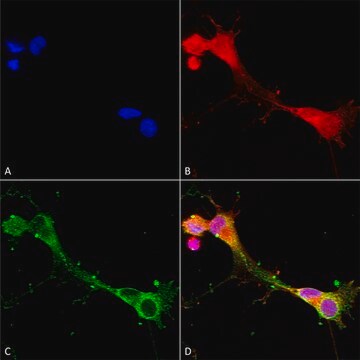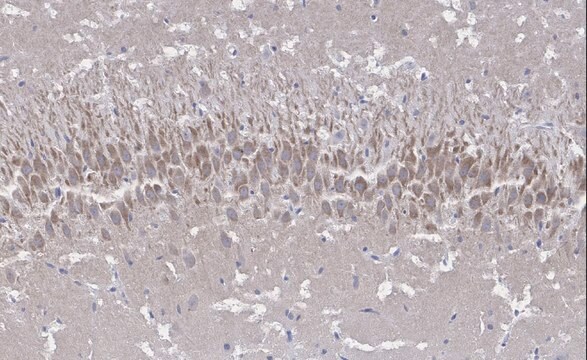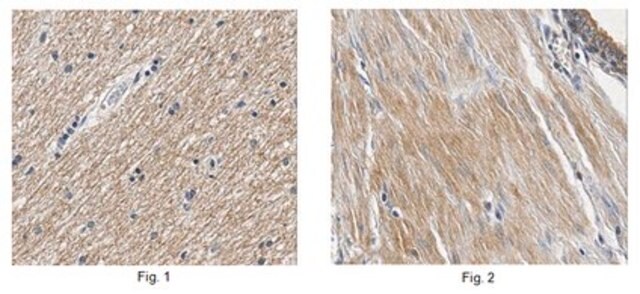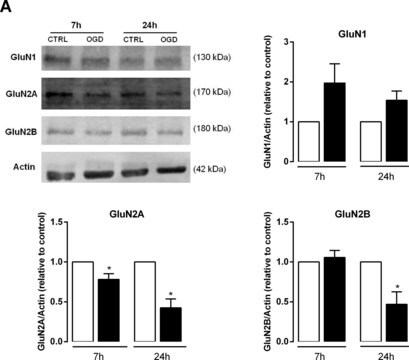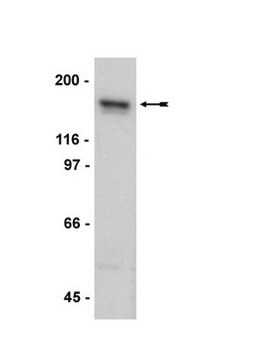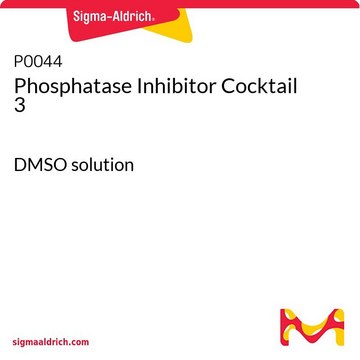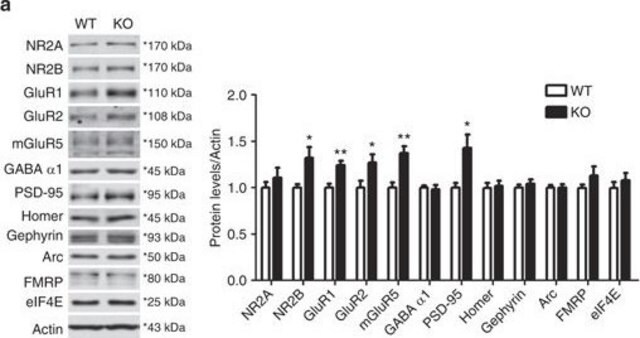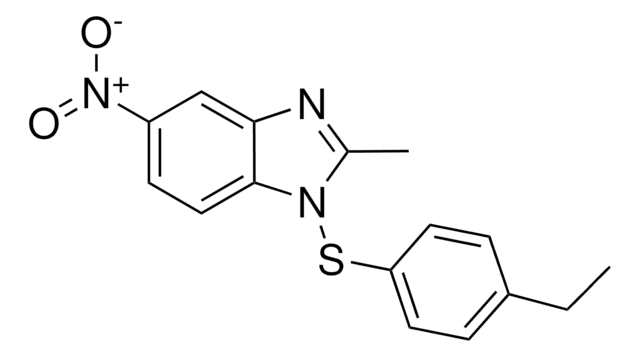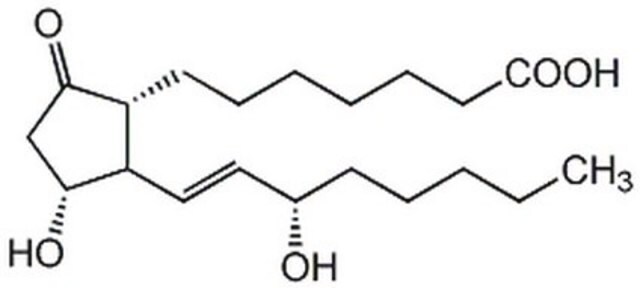AB1555
Anti-NMDAR2A Antibody
serum, Chemicon®
Synonym(s):
Anti-EPND, Anti-GluN2A, Anti-LKS, Anti-NMDAR2A, Anti-NR2A
About This Item
Recommended Products
biological source
rabbit
Quality Level
antibody form
serum
antibody product type
primary antibodies
clone
polyclonal
species reactivity
fish, human, rat, mouse
manufacturer/tradename
Chemicon®
technique(s)
immunoprecipitation (IP): suitable
western blot: suitable
suitability
not suitable for immunohistochemistry
NCBI accession no.
UniProt accession no.
shipped in
dry ice
target post-translational modification
unmodified
Gene Information
human ... GRIN2A(2903)
Specificity
Immunogen
Application
Neuroscience
Neurotransmitters & Receptors
* See suggested protocol
Immunoprecipitation using solubilized hippocampal slices. 3μL will (under appropriate conditions) quantitatively immunoprecipitate all NMDAR2A in 200μg rat brain.
Not suggested for use in immunohistochemistry.
Optimal working dilutions must be determined by the end user.
Physical form
Storage and Stability
Analysis Note
NMDAR2A is present in high concentrations in the hippocampus
Legal Information
Disclaimer
Not finding the right product?
Try our Product Selector Tool.
recommended
Storage Class Code
10 - Combustible liquids
WGK
WGK 1
Flash Point(F)
Not applicable
Flash Point(C)
Not applicable
Certificates of Analysis (COA)
Search for Certificates of Analysis (COA) by entering the products Lot/Batch Number. Lot and Batch Numbers can be found on a product’s label following the words ‘Lot’ or ‘Batch’.
Already Own This Product?
Find documentation for the products that you have recently purchased in the Document Library.
Our team of scientists has experience in all areas of research including Life Science, Material Science, Chemical Synthesis, Chromatography, Analytical and many others.
Contact Technical Service